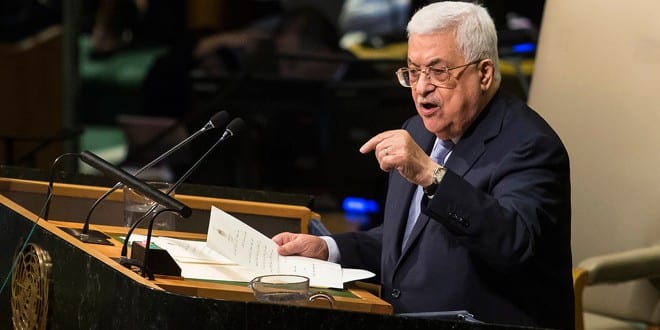Palestinian Authority leader Mahmoud Abbas announced on Thursday that he will schedule a date for elections in Judea and Samaria, eastern Jerusalem and the Gaza Strip.
In the wake of the Oslo Accords and as a step towards autonomy, Palestinians living in Judea and Samaria began voting in their own elections in 1994. Mahmoud Abbas was elected President of the Palestinian National Authority in January 2005, for a four-year term ending in 2009 but is still in power despite the total absence of any democratic process. The last elections for the Palestinian Legislative Council were held in January 2006. There have been no new elections either for president or for the legislature since these two elections; democratic elections in the State of Palestine since these dates have been for local offices only. Abbas is now in the 14th year of a four year term in office.
Hamas was elected by the Palestinians to run Gaza in 2006. Elections were supposed to be held in 2012 but did not take place.
“From the outset, we have believed in democracy as a foundation for the building of our State and society,” Abbas said in his speech at the annual U.N. General Assembly in New York. “This democratic process was paralyzed by the coup by Hamas in 2007, which is an unbearable situation.”
Hamas, a U.S.-designated terrorist group, has since controlled Gaza.
Therefore, continued Abbas, “I have decided, upon my return from this international gathering to announce a date for the holding of general elections in Palestine—in the West Bank, including East Jerusalem and the Gaza Strip.”
It appears that Abbas is responding to a grassroots demand inspired by Israel’s multiple elections. Last week, Jonathan Elkhoury, a Lebanese Christian who now proudly lives in Israel, tweeted the surprising trend on Palestinian social media.
“We want elections”- trending Hashtag in the PA and Gaza today. Looking at Israel having its 22nd elections the Palestinians are sick of Mahmoud Abbas and Hamas dictatorship for last 14 years. If you are a real pro Palestinian you’ll join the call for real freedom #بدنا_انتخابات
— Jonathan Elkhoury- جوناثان الخوري (@Jonathan_Elk) September 18, 2019




